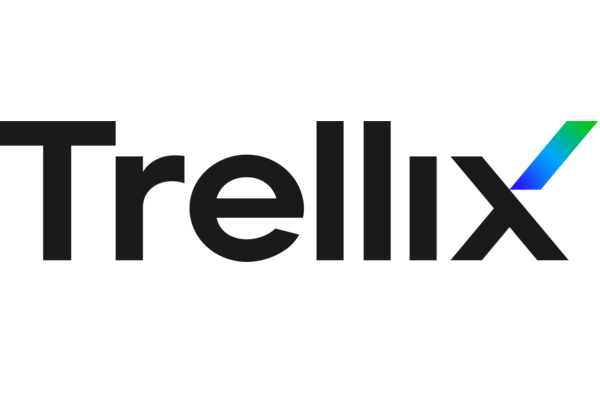Denver February 19
Microsoft, AWS and Google subject matter experts discuss Generative AI - including LLM Model Comparisons, GenAI Cost Management, RAG Data Architecture, NIST AI Risk Management Framework, Responsible AI - plus CyberSecurity/Compliance, Data Analytics/Privacy and Application Modernization/Cloud Migration.
Angelbeat provides a unique opportunity to directly interact with, ask questions to, plus learn from, the world’s leading Cloud/AI firms, in one focused program.
Scroll down to see the detailed agenda and speakers. Click on the name to view their Linkedin profile, and session title for additional information. CPE credit hours are provided.
While the event is designed for on-site attendees, all presentations will be Livestreamed via Zoom - just like a regular webinar - so remote viewers won’t miss a thing.
Through the support of Trellix, individuals attending in-person can win a pair of Apple AirPods, plus join us for lunch immediately following the event.
Please use your Angelbeat account - created on the secure Memberspace platform - to signup by clicking the green REGISTRATION button. You are automatically registered for the Zoom LiveStream, and can then request to attend in person (limited to 25 individuals so act quickly). If you already have an account, you will be asked to confirm your registration. Otherwise you are prompted to fill out a simple contact form.
TIME: 9 am MT until Noon
Speakers, Topics, Agenda
9 am MT Ron Gerber, CEO Angelbeat
Angelbeat Overview and Introductory Comments
Ron’s summarizes the day’s agenda, describes how Angelbeat can organize private/custom AI workshops for your organization, and why you should document an Artificial Intelligence Risk Management Framework, based on NIST Standards. Click on image above to watch Gerber’s Videoblog/Podcast the_angel_beat about Top AI Issues in 2025.
9:10 am Chris Wiederspan, Director Application Innovation, Azure, Microsoft
Data Residency, High-Availability, and Disaster Recovery in the Age of GenAI
In the early days of cloud, it was viewed as an infinitely scalable compute resource that had no bounds. However, in this new Age of AI, more and more data lives solely in the cloud and applications have become the lifeblood of nearly every business. Geopolitical and other global factors are influencing how businesses stay online and topics such as scalability, high-availability, and disaster-recovery must be rethought in this new era.
9:40 Jeff Meacham, Senior Technical Trainer, Trellix
Unlocking AI-Driven Security: Trellix Wise and Amazon Bedrock in Action
In this session, attendees will explore how the integration of Amazon Bedrock telemetry with Trellix XDR delivers unparalleled observability into AI-enabled applications. This integration offers complete visibility into the outputs of generative AI (GenAI) workloads, helping to detect suspicious activities and malicious content. Attendees will also learn how to enforce guardrails around data privacy and promote responsible AI practices, ensuring the safe deployment and management of GenAI in their environments.
10:00 am AWS Keynotes
Todd Moore, Senior Solutions Architect
David Marsh, Senior Solutions Architect
AWS Security Best Practices that Accelerate Innovation
At AWS, security is the top priority. As cyber threats become increasingly complex, organizations implement more complex tools to mitigate them.
In this session, you will learn how automation, centralized security tooling, and AI-assisted DevOps processes contribute to a security posture that allows your teams to innovate quickly without compromising on security.
Amazon SageMaker Unified Studio: An Integrated Experience for All Your Data and AI
As AI and analytics use cases converge, transform how data teams work together with SageMaker Unified Studio.
Discover your data and put it to work using familiar AWS tools for complete development workflows, including model development, generative AI app development, data processing, and SQL analytics, in a single governed environment
Create projects to collaborate with your teams, securely share AI and analytics artifacts, and access your data stored in Amazon Simple Storage Service (Amazon S3), Redshift, and more sources through Amazon SageMaker Lakehouse
10:30 am Jesse D. Ebel, Customer Engineer, Infrastructure & Security, Google
Building Secure AI workloads on Google Cloud
As AI adoption accelerates across industries, security becomes paramount. This session delves into building secure AI workloads on Google Cloud. We'll examine the significance of security in AI applications, detail Google's industry-standard Security AI Framework (SAIF), and demonstrate how various user personas are utilizing Vertex AI to create secure and robust AI solutions.
11:00 Roger Grimes, Data-Driven Security Evangelist, KnowBe4
Hacking the Hacker: Assessing and Addressing Your Organization’s Cyber Defense Weaknesses
Cybercriminals are out there, watching and waiting for the perfect opportunity. They are gathering information about your organization and users, devising the perfect plan to infiltrate your defenses.
But with a strategic approach to cyber defense you can hack the hacker before they strike! Roger A. Grimes, Data-Driven Defense Evangelist at KnowBe4, exposes the mind of a hacker to help you see your cyber risks from the outside. You’ll learn:
How hackers collect “private” details about your organization and your users
The most common root causes that lead to damaging cyber attacks
Common mistakes made when designing cyber defenses and how to fix them
Data-driven strategies for mitigating your biggest weaknesses
Why a strong human firewall is your best, last line of defense
Get the details you need to know now to outsmart cybercriminals before you become their next victim.














